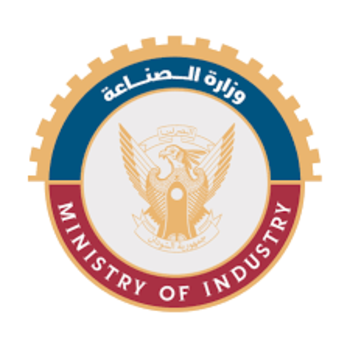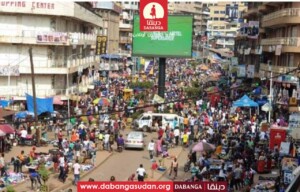Sudan Ministry of Industry and tax office workers go on strike

Ministry of Industry logo
Employees of the Sudanese Ministry of Industry in Khartoum began a strike on Monday, demanding improvement in work conditions and a pay rise. Tax office staff and South Kordofan government employees also began a strike on Sunday.
The Strike Committee said in a statement on Tuesday that the Ministry of Finance responded negatively to their demands, while the Council of Ministers did not respond at all.
The statement noted “a terrible decline” in working conditions at the ministry. “Promotions procedures are ignored and the previously approved job structure has not been implemented.”
Tax office staff laid down their tools to demand an increase in wages across Sudan on Sunday. On Tuesday, they announced more actions after the taxes administration refused to respond to their demands and threatened to dismiss the strikers.
In South Kordofan, government employees, including medics at state clinics and hospitals, embarked on a strike to demand payment of their salaries on Sunday.
Mohamed Adam Dahya, a member of the Staff Demand Committee, told Radio Dabanga that the strike excludes emergency cases. He said that the strike, which is demanding improved salaries and a month’s payment of the South Kordofan state’s revenues, will continue until January 7.
September saw a number of strikes across Sudan over unpaid salaries and the failure of authorities to implement the promised 2022 salary structure. Teachers are currently on strike across Sudan to demand better salaries and improved working conditions in state schools.
Last month, Radio Dabanga interviewed people about the cost of living in Sudan. Many said that market prices are too high. “My salary of SDG50,000 (USD86*) only covers two daily meals for five days a week,” a young teacher said.
In an interview on Radio Dabanga’s Sudan Today programme in September, economic expert Sidgi Kaballo described the inflation figures as “disturbing” and warned of a “revolution of the hungry” if the root causes of the economic problems are not addressed.
* The selling rates of the US dollar at Sudanese banks on Dec 28 varied between SDG576 and SDG 584 according to the Central Bank of Sudan.











 and then
and then